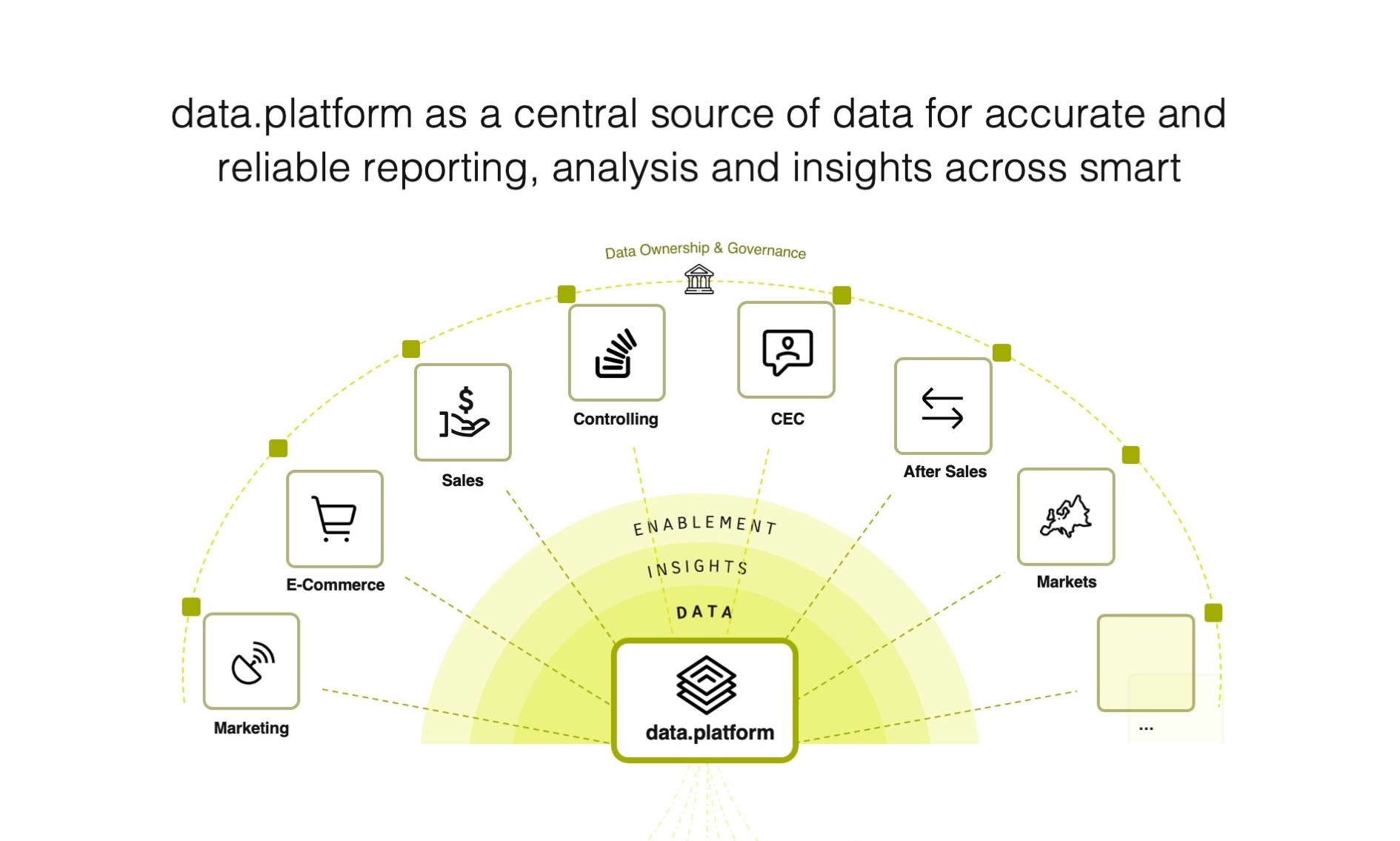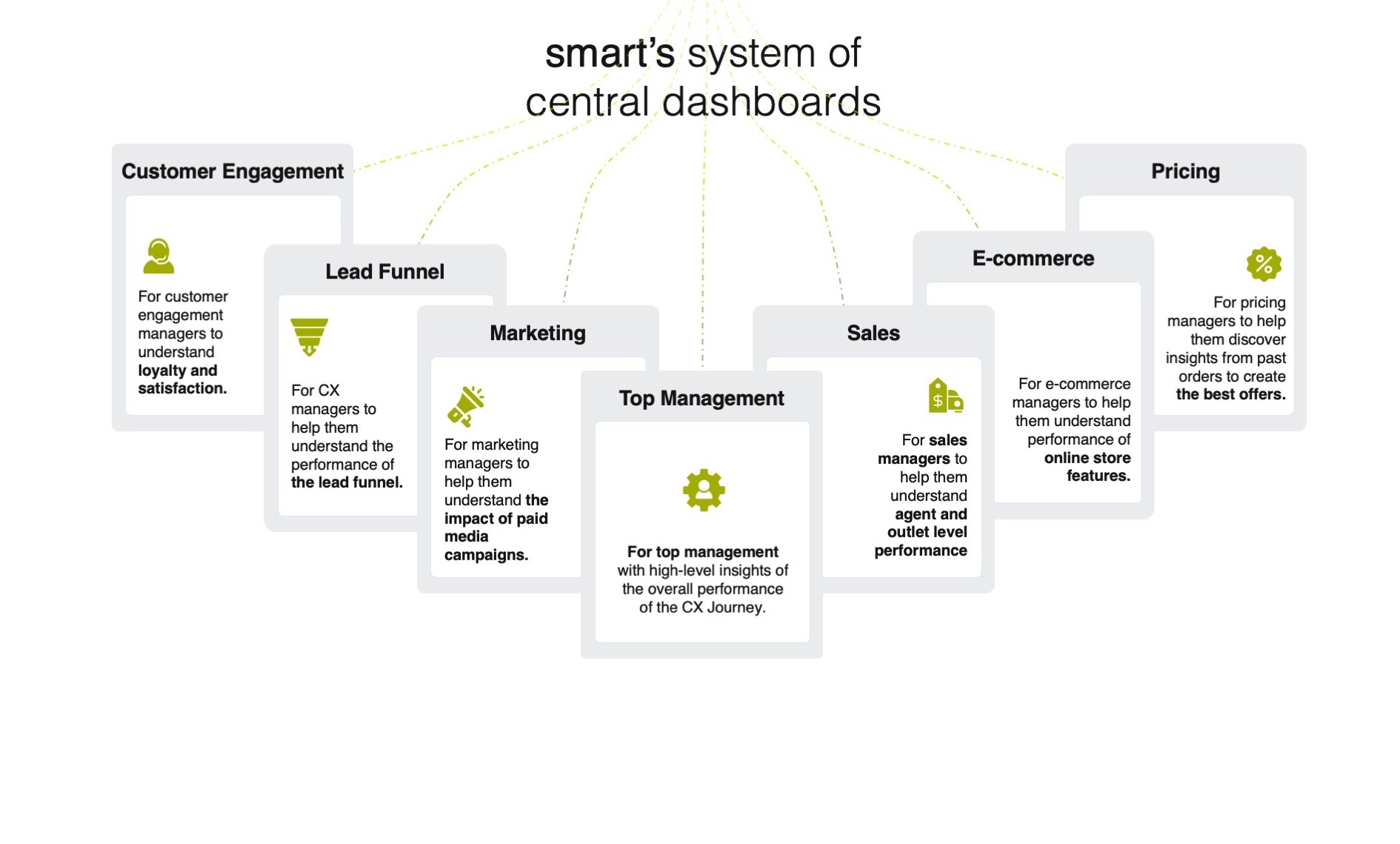
smart Europe, founded in 2019, aims to introduce a new generation of fully electric vehicles to the European market.
During its initial phase, the focus was on establishing a customer-centric and data-driven business model. Since 2022, smart Europe has collaborated with DEPT®’s data practice to lay the foundations for data-driven decisions across all customer experience and business operations.
Complex data challenges
Before entering the European markets and rolling out its new business model, smart needed to develop a data platform to centralise its data. This data platform needed to include customer journey touchpoints, provide a unified view of the business, and enable sales and marketing teams.
However, bringing data to the centre of a company’s culture is not a simple task. Data silos, changes in back-end systems, data regulations, and a complex technical infrastructure are just a few of the challenges smart faced. These challenges demonstrated the need to define technologies, processes, and employees that help the company achieve its goals using data.
The right data to accomplish their business goals
We needed to align with the company’s goals and challenges to successfully implement and evolve smart’s data strategy. We began developing a clear understanding of the business strategy and analytics applications to support their teams. The following points represented our benchmarks for success:
- Are we providing the smart teams with the right data to gain valuable business insights?
- Do employees trust the data to make more informed decisions for steering the company?
- Are employees adopting our central dashboards and integrating them into their processes?
- Are we enhancing data literacy and equipping employees with the right tools to use data efficiently and effectively?
- Are we democratising access to the data platform, enabling analysts to explore data independently?

Creating a shared understanding of web analytics
A robust data strategy encompassing initiatives around data applications, technology, and enablement paved the way for establishing a data-driven culture at smart.
Once the key elements of the data platform were set up, the initial data products were introduced gradually, initially focusing on aligning with the company’s key KPIs. An integral part of this was creating a shared understanding of web analytics, sales, and marketing metrics, as well as their definitions, to ensure everyone in the company speaks the same language.
After the initial reports were introduced for company-wide alignment, the next step was to activate the data collected on the data platform for a personalised and seamless customer experience. In addition to centrally managing key reporting and use cases for data activation, a governance framework was established, allowing smart to scale the use of the data platform for analysts across the company, enabling self-service reporting and detailed ad-hoc analyses with curated and high-quality data.

Results that are worth seeing
In summary, we assisted smart in successfully implementing a data strategy with results that speak for themselves:
- Establishment of a collaborative data team consisting of 19 data experts for strategy, engineering, and analytics
- Definition of smart’s data strategy: vision for data products and implementation of use cases, including data governance and enablement
- Development of smart’s data platform as a single source of truth: product discovery, engineering, data quality, continuous integration of data sources, and data governance
- Establishment of smart’s KPI strategy as a dashboard system to provide a comprehensive view of performance across the entire sales funnel, including marketing, e-commerce, sales, lead management, inventory, and after-sales
- Laying the foundations for web optimisation and conversion rate optimisation, including web tracking engineering and Adobe Customer Journey Analytics implementation
- Initiation of data democratisation across multiple smart teams to enable access to curated datasets on the data platform
20+
data sources integrated and unified
70+
70+ company KPIs reported via the central system of dashboards
50+
weekly active dashboard users
Questions?
Director of Data, CRO & Insights



